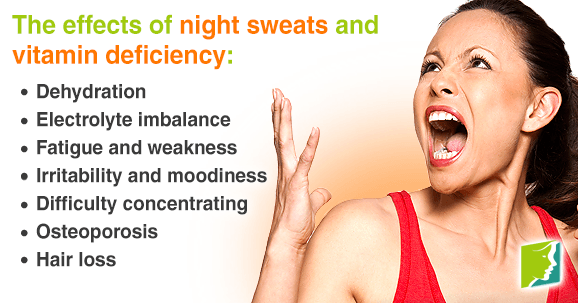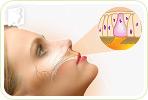Night sweats are one of the most common and unpleasant symptom of menopause, affecting nearly 70% of women. You wake up to cold, sweaty, and anxious, and if they continue long term, can lead vitamin deficiency.
What Are Night Sweats and Why Am I Experiencing Them?
Night sweats are often caused by hormonal imbalance, particularly changes in levels of estrogen, progesterone, and testosterone. These deregulations confuse the hypothalamus, which is responsible for regulating temperature in the body. It incorrectly identifies these fluctuating hormone levels as a dangerously high body temperature and sends signals to release a massive amount of heat. The heat released often takes the form of abrupt flushing, known as a hot flash. When your body then realizes it's overheating, it begins to sweat excessively to try to cool down.
What Are Vitamin Deficiencies and Why Am I Experiencing Them?
Vitamin deficiency is a condition in which certain necessary nutrients are either not properly absorbed by the body or lost in some way. During menopause, it can be caused by long term fluid loss during night sweats.
The Effects of Night Sweats and Vitamin Deficiency
Night sweats and its associated vitamin deficiency have a number of side effects. You may experience one or all of the following:
- Dehydration
- Electrolyte imbalance
- Fatigue and weakness
- Irritability and moodiness
- Difficulty concentrating
- Osteoporosis
- Hair loss
During menopause, women often have increased vitamin loss due to malabsorption issues. Aside from generally wrecking sleep quality and general alertness, night sweats can in some cases have much more far reaching consequences to your general health.
Is There Any Relief?
Women suffering from night sweats and vitamin deficiency have a number of possible treatment options, many of which are easy lifestyle changes or simple things to incorporate into your daily routine. Try things like:
- Sleep in light sheets and blankets. Cotton and natural fibers are better than synthetics.
- Try to avoid hot or spicy foods, especially directly before bed.
- Take cold or lukewarm showers.
- Take a daily multivitamin.
- Use herbal supplements (e.g., black cohosh and dong quai) to stimulate natural estrogen production.
Anything that will help lower the body temperature will help prevent night sweat episodes.
If you are concerned about your night sweat episodes, or believe that you are experiencing harmful effects from them, always consult your doctor.
Click on the following link to read about treatments for night sweats.
Sources
- The National Institute of Health. "Signs of the Menopausal Transition" www.nih.gov
- Boston Women's Health Collective. "Hot Flashes, Night Sweats and Sleep Disturbances". Our Bodies, Ourselves, 2006.
- Von Muhlen, DG, et al. "A community-based study of menopause symptoms and estrogen replacement in older women". Maturitas. Sept 1995; 22(2):71-8.



